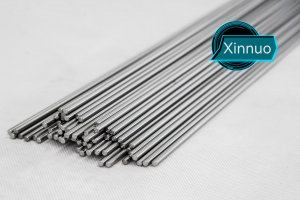Titanium has become the first choice for surgical implants in the medical field due to its excellent properties and biocompatibility. In recent years, the use of titanium in orthopedic and dental implants, as well as a variety of medical devices, has increased dramatically. This surge in popularity can be attributed to titanium's unique properties such as strength, corrosion resistance and compatibility with the human body. In this article, we will explore the reasons why titanium has become the material of choice for medical implants, as well as the specific criteria and grades that ensure titanium's suitability for such applications.
One of the main reasons for the widespread use of titanium in medical implants is its biocompatibility. When a material is considered biocompatible, it means that it is well tolerated by the body and does not cause adverse immune reactions. Titanium's biocompatibility is due to its ability to form a thin protective oxide layer on its surface when exposed to oxygen. This oxide layer renders titanium inert and resistant to corrosion, ensuring that it will not react with body fluids or tissues. As a result, titanium implants are less likely to cause inflammation or rejection, making them a safe and reliable choice for medical applications.
In addition to biocompatibility, titanium has an excellent strength-to-weight ratio, which is critical for implants that must withstand the mechanical stresses and strains of the body. Whether for surgical implants, orthopedic fixation devices or dental implants, the materials used must be strong enough to support the body's functions without being too bulky. Titanium's high strength and low density make it an ideal material for such applications, providing the necessary structural support without adding unnecessary weight or stress to the body.
In addition, titanium has excellent corrosion resistance, which is critical for implants that remain in the body for long periods of time. The physiological environment of the body is highly corrosive, and various body fluids and electrolytes can cause metal implants to degrade over time. Titanium's natural oxide layer acts as a corrosion barrier, ensuring the long-term stability and integrity of the implant in the body. This corrosion resistance is particularly important for implants in load-bearing applications, such as hip and knee replacements, where the material must withstand constant mechanical stress without degradation.
Several international organizations have strict requirements for specific standards and grades of titanium used in medical implants to ensure the quality and safety of these materials. The American Society for Testing and Materials (ASTM) has developed standards such as ASTM F136 and ASTM F67 that describe the chemical composition, mechanical properties, and test methods for medical grade titanium. These standards ensure that titanium used in implants meets the necessary criteria for biocompatibility, strength, and corrosion resistance.
In addition, the International Organization for Standardization (ISO) defines specific grades of titanium, such as ISO 5832-2, ISO 5832-3, and ISO 5832-11, which are commonly used in orthopedic and dental implants. These ISO standards define the requirements for titanium alloys used in surgical implants, including composition, mechanical properties, and biocompatibility testing. Ti6Al7Nb is a well-known titanium alloy for medical implants, combining high strength, biocompatibility and corrosion resistance for a wide range of implantable devices.
Titanium for medical implants is typically available in the form of rods, wires, sheets and plates. These different forms can be used to make different types of implants and devices, from bone screws and plates to dental abutments and spinal cages. The versatility of titanium in different forms allows manufacturers to tailor the material to specific implant designs and applications, ensuring that the implant meets the required mechanical and biological performance criteria.
In summary, titanium's excellent biocompatibility, strength and corrosion resistance make it the material of choice for medical implants. Specific standards and grades such as ASTM F136, ASTM F67, ISO 5832-2/3/11 and Ti6Al7Nb ensure that titanium used in medical implants meets stringent quality and safety requirements. With its ability to withstand the body's physiological environment and provide long-term stability, titanium continues to play an important role in advancing medical implant technology and providing patients with reliable, durable solutions for a variety of orthopedic and dental needs.
We are led by a group of savvy engineers and industry experts with over 20 years of technical experience in manufacturing high-end titanium materials. We understand the uniqueness and preciousness of life and our business philosophy is to work with our customers to care for human health with exceptional service, high quality and high value.
Welcome to Join hundreds of Xinnuo's happy customers to produce quality Titanium products for a human's healthy and happy life.
Post time: Mar-25-2024





